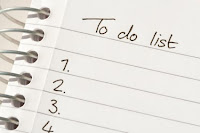Non-Profit Consultant and Expert Grant Writer, Derek Link, answers the question “What is a Grant Writer?” in his own unique way:
So many times, in response to the standard “guy” question, “So, what do you do?” I get this deer in the headlights response to my answer, “I’m a grant writer.” The predictable follow-up question is, “Really? What’s a grant writer?”
Most people (not all) have heard of grants but most people think it’s a gift-wrapped gold bar that Uncle Sam sends out to undeserving people who make obscene artwork. So I explain what a grant is first.
Basically, a grant is an effort on the part of the government to solve a problem, improve a condition, demonstrate the validity of an idea, and sometimes – it’s true (I wish it weren’t) – pay back a political favor.
The government goes about this by organizing a grant competition. This competition is assigned a budget and the size of the grants is usually pre-determined, and so the budget allocated to the program determines the number of grants to be given out. Applications are developed and made available, deadlines for submission of applications are set, and criteria for scoring the applications are created.
When all of the applications come in, they are sorted and checked to make sure the writers followed all the rules, those that did not are tossed into the trash can and the rest are scored. The highest scores win the dough, everyone else gets zilch and has to wait for another round of competition.
After I get the person to understand what a grant is, then they often must be helped to understand what the application entails. This is when in the conversation they glaze over and their minds stray off into “I like pizza” mode. So I usually cut it short with “A grant writer writes the applications for grants,” which is really all they wanted to know and more than they wanted to know all at the same time.
Guys usually ask you what you do because they’re trying to gauge your level of success to see if you’re someone they can relate to, aspire to be like or perhaps give a dollar to. But being told that someone is a grant writer is impossible to quantify.
Being a doctor or a lawyer implies one is making a substantial income but a grant writer is such an unknown that people who care about that stuff – and guys often do – really have a hard time wrapping their head around what it means.
I like that part of being an inscrutable grant writer, apparently savvy about the mysterious inner-workings of government, apparently owning the ability to help others access a trickle of the government wealth, and having an occupation with no common point of reference with which to determine my income level.
Published by Creative Resources & Research http://grantgoddess.com






